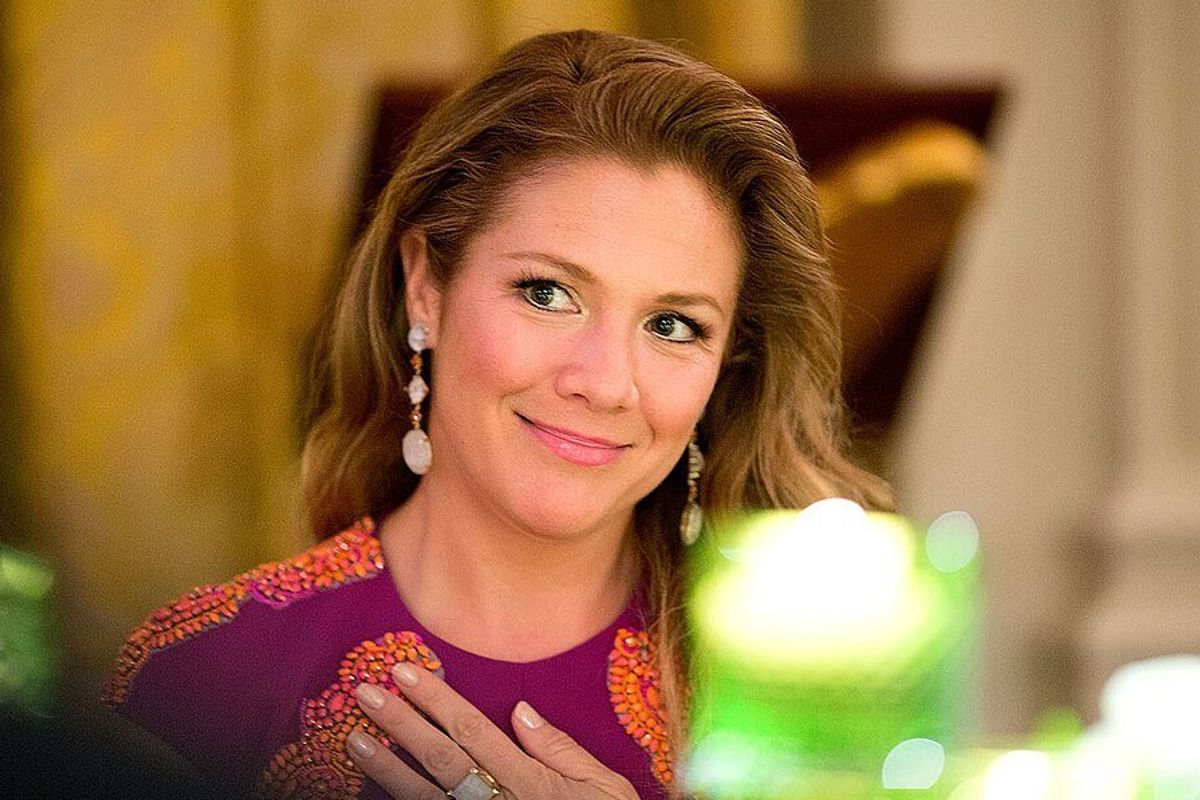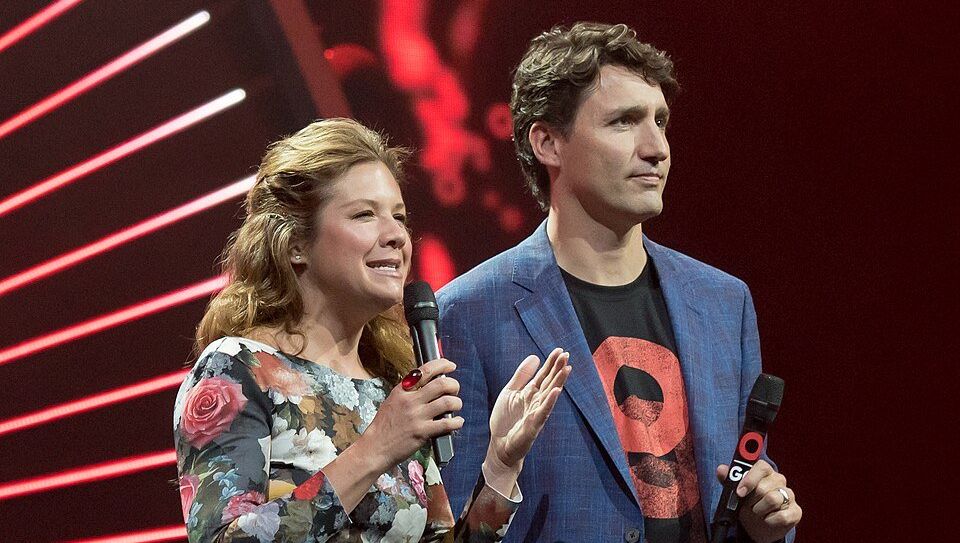Sophie Grégoire Trudeau shares the big understanding that can make democracies healthy again
In an Upworthy exclusive, Canada's "unofficial" first lady shares the root of political dysfunction.

Sophie Grégoire Trudeau at the White House.
Going through a divorce is one of the most psychologically stressful things someone can experience, right after the death of a spouse (and divorce is a sort of death of its own). But for mother of three Sophie Grégoire Trudeau, her split with Canada’s Prime Minister Justin Trudeau has been even more devastating because it happened on the world’s stage.
The 2023 breakup resulted in Grégoire Trudeau experiencing chronic stress, so she turned to the yoga mat and self-regulation to find strength through the painful transition. "I have never been more attuned and caring of my mental health than through this whole process," she told Yahoo Canada. "I have been pushed to dig into my authenticity and to put my attachment issues aside.”
Grégoire Trudeau documented her struggles and triumphs in a recent memoir, Closer Together: Knowing Ourselves, Loving Each Other, where she discusses living with an eating disorder, confronting difficult truths, and finding a deeper connection to herself. Ultimately, it’s a story about overcoming adversity to live a more authentic and fulfilling life.
Sophie Grégoire Trudeau and Justin Trudeau

On June 24, 2025, she shared her journey at Aspen Ideas: Health during a discussion called “Sophie Grégoire Trudeau: A Personal Wellness Journey.” After the talk, she sat down with Upworthy to share a fascinating connection she made between mental health and politics: healthy democracies require citizens who feel safe in their bodies.
How to create healthy democracies
“Feeling safe in our bodies is a primal need. We all want to feel safe in our bodies. So, if you look at Abraham Maslow's pyramid, safety and having food on your table, a roof over your head—if safety is not there, it's game over for everything else. So, physical safety and emotional safety allows for better human connection. Better human connection means healthier democracies,” she told Upworthy.
She adds that when we are in survival mode, we don’t have time for our deeper needs and lack the bandwidth to develop or practice tolerance and empathy towards others. “You will not be thriving, but you'll be in more of a survival state, and when you're in that mode, your body is doing what it needs to save you. So you don't have much more energy and acceptance or tolerance to give to anyone.”

When we lack the space for empathy, it becomes harder to understand others, which can throw us into an unending loop of negativity. This can lead to constant rumination about how others are making your life miserable. “It goes on and on and on and on, and it never stops, and then you go and consume something on TikTok or on social media that is about how it's others' fault all the time. 'Well, of course you're miserable, it's their fault,' so that reinforces your rumination process.”
Once people stop showing compassion and empathy for one another, the entire democratic process, from how we discuss issues and culture—whether at our kitchen tables or on social media—is affected. The good news, according to Grégoire Trudeau, is that just like negativity can spiral out of control, positivity can do the same. “A negative loop will reinforce a negative loop, but a positive loop will reinforce a positive loop," she told Upworthy. “So, from a psychological perspective, we can help the brain do that by watching what we consume to stop the negative rumination process.”
The connection Grégoire Trudeau makes between politics and safety is a valuable reminder to all of us who wish to engage in the democratic process while promoting healthy discourse. How we engage with the other side in a debate reveals a great deal more about us than it does about them. When we find ourselves engaging in negativity or refusing to listen to another person’s needs, it may be a clear sign that there’s a significant problem we need to address within ourselves.
- YouTube www.youtube.com






 A group of friends chatting wearing masks.via
A group of friends chatting wearing masks.via 
 A young girl runs on the sand.
A young girl runs on the sand.  Running with joy might require a different outfit.
Running with joy might require a different outfit.
 a man sitting at a desk with his head on his arms Photo by
a man sitting at a desk with his head on his arms Photo by  Can a warm cup of tea help you sleep better? If you believe it, then yes. Photo by
Can a warm cup of tea help you sleep better? If you believe it, then yes. Photo by 
 A boy drawing on an iPad.
A boy drawing on an iPad. 
 Dams have dramatic impacts on the surrounding ecosystem.
Dams have dramatic impacts on the surrounding ecosystem.  Beavers aren't just cute and charismatic.
Beavers aren't just cute and charismatic.